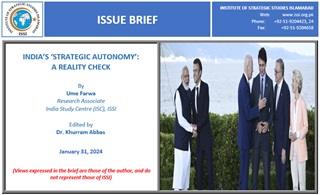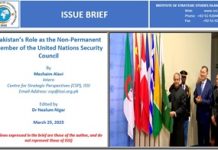‘Strategic autonomy’ is defined as a state’s ability to independently make its decisions – especially in its foreign relations – and adopt the preferred choices without being influenced by other states.[1] The first dimension of ‘strategic autonomy’ concerns with a state’s interactions, preferences, decisions, and practices of foreign policy and the second is connected to security and defense-related policies.[2] The most prominent examples of international relations actors that adopted and implemented the concept of ‘strategic autonomy’ in their foreign and security policy are the European Union (EU), France, and India.
However, in the recent times, the concept of ‘strategic autonomy’ is being contested. It is considered more of a defensive strategy of the yesteryear due to inevitability and desirability of partnerships in an increasingly interdependent world.[3] Also, in terms of realpolitik, ‘strategic autonomy’ is not a rigid concept of staying non-aligned in a bipolar or an increasingly divided multipolar world; rather it is a smart strategy to position a state for better bargaining – with accruing maximum benefits.[4] Concerning the EU’s ‘strategic autonomy’, this became more evident in 2022 when Germany assumed the presidency of the Council of the EU. In July 2022 while delivering an address at the EU, the then German Chancellor, Angela Merkel charted a new path for the EU’s ‘strategic autonomy’. She urged the Council to build its defense instead of relying on Washington. She also discussed the option to engage in a strategic partnership with China and develop relations with Russia and Middle-Eastern countries from a new perspective.[5] France shares the same vision.[6]
















